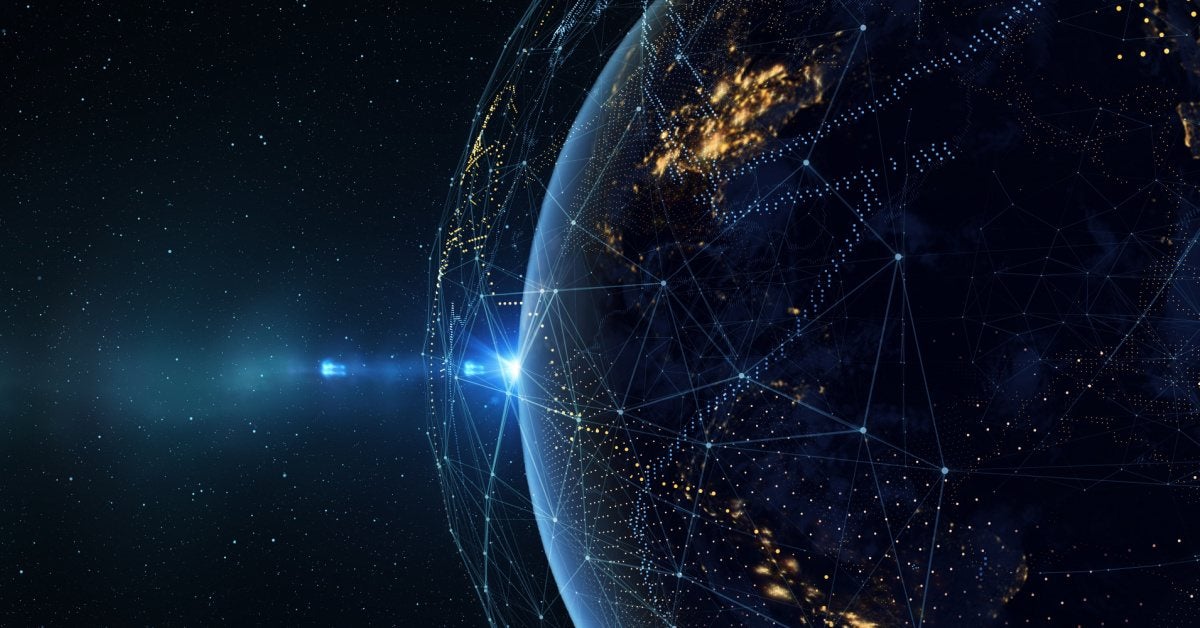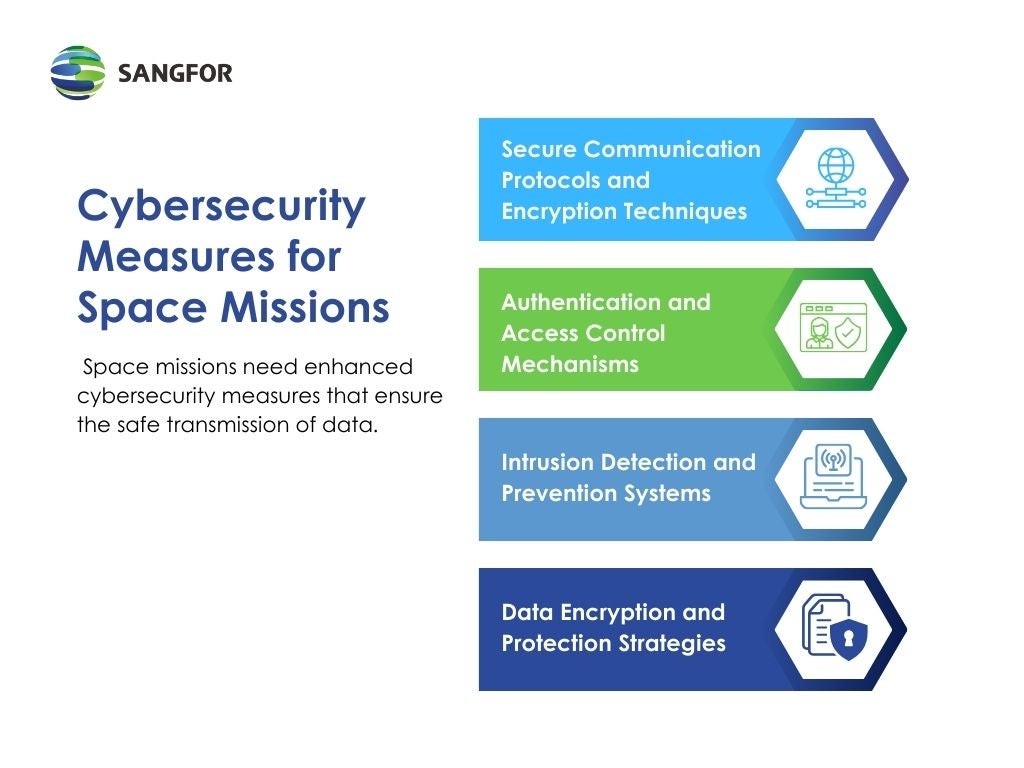Mankind has always been reaching for the stars. From the development of the wheel to the first automobile, humans have never faltered in going beyond what was thought possible. Space travel is only one of the latest innovative and rapidly growing sectors of human intelligence and design to lift off the ground. The privatization of the space industry is taking place, so the opportunities in Space Cybersecurity are also increasing. The global space economy hit record numbers in 2022 by reaching US$ 546 billion and is projected to climb another 41% over the next five years.
This drastic rise is due to new technologies, an increase in private and public company space exploration, and investments from governments. A general interest in space ventures and technology has revolutionized to potential of space for the digital age.
Unfortunately, space has to endure a lot more than just man-made devices bumbling around in orbit. It now has to face the accompanying challenge of space cybersecurity, which is critical for protecting space assets. As the space domain expands, threats to space systems become more prevalent, and cybersecurity measures must keep pace with the growing risks.
Cybersecurity in Space: Recent Scenario
Now, you might think that space cyber is far removed from your daily life but most of the technologies and infrastructure we depend on are circling the planet. From telecommunications satellites and GPS to internet connectivity and weather tracking, technology in space is crucial for global communication and innovation. Cyberattacks on space infrastructure could have devastating effects on everyone on the ground, affecting everything from internet access to national security.
As space systems become more interconnected and computationally complex, the risks grow. The rise of space cyber threats also increases due to outdated infrastructure and the ever-expanding space domain.

Threats to Space Systems and How They Impact Global Security
Cybersecurity for space exploration is also important to maintain secure lines of communication, accurate navigation, and precise control. Space exploration is already a critical venture that requires certainty and stability to ensure the safety of astronauts, technicians, and more. This means that cybersecurity in space should be a priority concern.
One of the biggest space cybersecurity threats is hacking into spacecraft and satellites. Cybercriminals can easily take control of vital systems, manipulate controls, and steal confidential data. Jamming and spoofing methods are often used to disrupt or slow down the communication of data from satellites. The war inUkrainesaw the use of jamming and other cyberattacks on the Starlink SpaceX terminal. Military leaders have said that these tactics are common weapons.
A research paper from the University of Oxford has also stated that the threat of cyber-attacks has risen due to space systems becoming “increasingly interconnected and computationally complex.” However, most space stations and space infrastructure were built before there was a global focus on cybersecurity. This means that these complex systems are now highly susceptible to attacks, leading to critical vulnerabilities in space security.
Two Biggest Telescopes were hacked - a challenge in space cybersecurity
On the 1st of August, the National Science Foundation's National Optical-Infrared Astronomy Research Laboratory - or NOIRLab - reported a cybersecurity incident that halted operations at its Gemini North Telescope in Hawaii and Gemini South Telescope in Chile. These attacks came just a few days before the NCSC issued its advisory to American space companies and research organizations about the threat of cyber-attacks and espionage.
Smaller telescopes on Cerro Tololo in Chile were also affected and the staff are still unsure about how the attacks took place. According to a statement by NOIRLab, the recovery process of the affected facilities and telescopes is still ongoing. The scientific community suffers every moment that operations are disrupted by cyber-attacks – not only with expenses but also due to the data being lost during downtime.

FBI and Air Force Warn of Cyber-Attacks on Space Industry
In August, the FBI, the National Counterintelligence and Security Center (NCSC), and the Air Force Office of Special Investigations released a bulletin warning that foreign intelligence agencies could use cyber-attacks, shell companies, or old-fashioned espionage to collect sensitive information about American space capabilities or innovative technologies. The agencies noted that these foreign intelligence entities “recognize the importance of the commercial space industry to the US economy and national security - including the growing dependence of critical infrastructure on space-based assets.” They go on to state that US space-related innovation and assets are seen as potential threats as well as valuable opportunities to acquire vital technologies and expertise.
The advisory went on the state that these attacks could also collect sensitive data related to satellite payloads to disrupt and degrade US satellite communications, remote sensing, and imaging capabilities while also targeting American commercial space infrastructure during international conflicts. The advisory also claims that the global space economy will grow to more than US$ 1 trillion within seven years. The agencies warned that space infrastructure is “fundamental to every aspect of our society, including emergency services, energy, financial services, telecommunications, transportation, and food and agriculture.”
What are the Challenges in Space Cybersecurity
As mentioned before, cybersecurity for space has been a challenge due to the older systems being used. Most governments have yet to implement adequate cybersecurity measures in space projects due to a lack of funding, infrastructure, and skills. The complexity, interconnection, and rapid growth of the space sector also make it a wider target surface for hackers.
Limited Resources and Bandwidth Constraints
Without the right funding and internet, most countries around the world are battling to stay ahead in the space race. These limited resources can lead to low or non-existent security measures in place.
Vulnerabilities in Satellite Systems and Ground Infrastructure
Between the complex operations between space, ground, links, and users, there are several potential vulnerabilities to contend with when it comes to space and ground infrastructure. Cyber threats now also have a larger target with the growing interest from private and commercial organizations. A few of the potentially vulnerable areas in existing space cybersecurity include:
- Software-defined radio compromise.
- Insider threats.
- Hacking ground systems to interact with satellites.
- Using design and hardware development to imbed malicious features.
- Communications hacking on TT&C systems through command link injections, replay attacks, or electronic attacks such as jamming and spoofing.
- Software vulnerabilities.
Potential Impact of Cyber-Attacks on Space Missions
Cyber-attacks on space infrastructure can include malware installation, ransomware attacks, and data or system breaches. All these attacks can disrupt communications, supply chains, national security, internet access, and global economies. Space missions affected by cyber-attacks can also lead to the injury or death of astronauts, the destruction of property, and the halting of progress in space exploration.
To address these vulnerabilities, security space measures and the integration of digital twins are being explored. Digital twins can simulate the entire lifecycle of space assets, helping to anticipate weaknesses and enhance security space infrastructure in real time.
What are the Opportunities in Space Cybersecurity?
As the space race intensifies and nations rush to create new and innovative technologies to keep up, cybersecurity for space is also becoming a lucrative market. Smaller businesses can seize this opportunity to fill the demand for cybersecurity measures for space technology. Forbes has listed a few ways that smaller companies can amplify their brand in this rapidly expanding sector:
- Innovate and develop space cybersecurity solutions.
- Stay informed on industry trends and legislation.
- Establish thought leadership.
- Collaborate with educational institutions.
- Participate in industry associations and events.
- Diversify service offerings.
- Create strategic alliances.
- Establish your brand as a pioneer in the field.
Check the link below to learn more about how AI and cybersecurity can shape the future of space defense:
Cybersecurity Measures for Space Missions
Space systems can be vulnerable because of features like hardcoded credentials – which are used by ships, planes, and the military and can be accessed easily by hackers. This is why space missions need enhanced cybersecurity measures that ensure the safe transmission of data. Some of the cybersecurity measures that can be used include:
- Secure Communication Protocols and Encryption Techniques: Keeping communications between ground and space stations secure is a crucial element of space cybersecurity. The use of encrypting techniques will ensure a protected line of communication that can be vital for the safety of lives, data, and technology.
- Authentication and Access Control Mechanisms: Maintaining the right access controls will ensure that only authorized personnel have access to critical infrastructure. Using a zero-trust policy will go a long way to keeping the space system secure.
- Intrusion Detection and Prevention Systems: Cyber threats need to be identified, isolated, and mitigated by the infrastructure in place. Space missions need to employ active intrusion detection and threat intelligence to root out cyber-attacks before they can do any damage to the system.
- Data Encryption and Protection Strategies: Hackers will try to exfiltrate satellite data or manipulate data to deliver incorrect transmissions. With data encryption, communications are secure, and the data cannot be stolen, manipulated, or damaged.

Space technology has enhanced and elevated as the modern age has developed. Satellites are no longer merely amplifying signals but are growing much more complex and playing a much bigger role in communications on Earth. These innovative new designs have opened a whole world of opportunities for developers, engineers, and inventive minds. We just have to tread carefully and ensure that the future we create today can still be secure tomorrow.
Sangfor is a leading cybersecurity and cloud provider that believes in reaching beyond the stars to create a secure, innovative, and better future for us all. For more information on Sangfor’s cybersecurity and cloud computing solutions, please visit www.sangfor.com.
Contact Us for Business Inquiry
Frequently Asked Questions
Space cybersecurity refers to the protection of space-based systems, including satellites and ground infrastructure, from cyber threats such as hacking, jamming, and data breaches.
Space cybersecurity is vital for protecting space assets, ensuring national security, maintaining communications, and safeguarding critical infrastructure that relies on space technologies.
Threats include hacking, spoofing, jamming, and malware attacks targeting satellites, spacecraft, and ground systems, with potential impacts on global communication and security.
Protecting space assets involves using advanced encryption, secure communication protocols, intrusion detection systems, and strict access control mechanisms to prevent unauthorized access.
As the space domain grows, there are opportunities for companies to innovate in cybersecurity solutions, collaborate with industry leaders, and provide services to protect the expanding space infrastructure.





